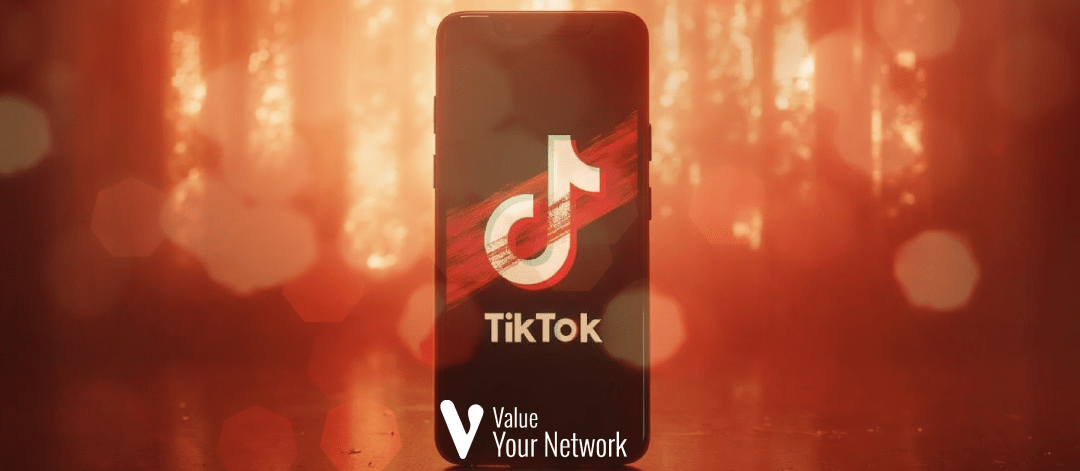Find out why TikTok could be banned in the US and how creators are preparing by migrating to YouTube Shorts, Instagram Reels, and Lemon8
Imagine a world without TikTok, the platform that has become a must-have for millions of Americans. But it’s a reality that could become a reality in the coming months. The threat of a ban looms, and content creators who have built their reputations and revenues through the app are mobilizing to not lose their audience.
But why is TikTok in the crosshairs of the American authorities?
Which platforms do creators favor to bounce back?
And most importantly, what impact will this ban have on users and small businesses?
Find out in this article everything you need to know about this crisis that could shake up the social media ecosystem
The specter of an imminent TikTok ban
TikTok is under threat in the United States. Following a unanimous decision by a federal appeals court, the short-form video app could be banned as early as January 2025 if its owners, ByteDance, fail to comply with the law requiring a sale to a U.S. entity. With 170 million American users, the app is at the heart of a debate that mixes national security and freedom of expression.
TikTok plans to take the case to the Supreme Court, but in the meantime, creators aren't sitting still. Many are calling on their followers to follow them on alternative platforms like Instagram Reels, YouTube Shorts and even Lemon8, the latest app from ByteDance.
The impact of a possible ban on creators
TikTok is more than just an entertainment app. For many creators and small businesses, it’s a go-to tool for generating revenue and reaching a global audience. Losing TikTok in the U.S. would mean:
| Category | Estimated figures |
|---|---|
| Small business turnover | 1 billion euros per year |
| Creators' income | 300 million euros per year |
| Contribution to US GDP | $8.5 billion in 2023 |
For creators, the ban could mean a loss of visibility and revenue, especially for those who rely on TikTok’s unique algorithm to reach new audiences. Small businesses, meanwhile, could see their organic reach and ad effectiveness decline significantly.
Why is TikTok in the United States' sights?
The law Protecting Americans from Foreign Adversary Controlled Applications Act, passed in April 2024, gives the U.S. government the power to ban any app it deems dangerous to national security. TikTok is accused of:
- Collect personal data : US authorities fear that this information could be accessible to the Chinese government.
- Risk of manipulation : TikTok could be used to spread propaganda or influence public opinion.
The appeals court rejected the free speech argument, explaining that the purpose of the law was to protect American citizens from foreign influence.
Alternatives considered by the creators
Faced with this uncertainty, creators are stepping up their efforts to stay connected to their fans. Many are migrating to platforms like YouTube Shorts, Instagram Reels, or even Lemon8, recently integrated into TikTok to facilitate the transition.
| Platform | Benefits |
|---|---|
| YouTube Shorts | High monetization, diverse audience |
| Instagram Reels | Integration with Instagram Stories |
| Lemon8 | Hybridization between Instagram and Pinterest |
| Large audience but commitment limited |
Some TikTokers, like Annie (@invitedinred, 266K followers), advise their followers to subscribe to their Instagram and YouTube accounts to continue following their content.
Lessons from India's TikTok ban
The TikTok ban in India in 2020 showed that creators can bounce back on other platforms, but it also led to:
- A loss of content diversity.
- Less visibility for small creators.
- Content is often less spontaneous on new platforms.
SMEs and creators will therefore have to reinvent their content strategies and adapt to the specificities of alternative platforms.
An uncertain future for TikTok in the United States
TikTok’s survival largely depends on the Supreme Court’s decision. If the ban is upheld, ByteDance could be forced to sell or abandon the U.S. market. In the meantime, creators and brands are already preparing for the post-TikTok era by testing different formats and strengthening their presence on other networks.
And you, what is your opinion on this ban? Will you follow your favorite creators on other platforms? Share your thoughts in the comments!

